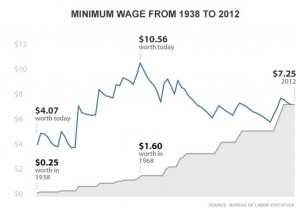Amidst scandal, IRS needs to re-consider non-profit qualifications
This past May, the IRS came clean about their thorough scrutiny towards the Tea Party and affiliated conservative groups. Speculation surrounding this scandal has developed since prior to the 2012 election, raising suspicions as to who was to blame for the inquiries. However, in manipulating this IRS scandal into a conspiracy theory centered on President Obama we have lost focus of the true issue at hand: organizations unrelated to social welfare that are receiving tax-exempt status.
Let me start by saying that it is the IRS’ responsibility to remain politically neutral; they did something illegal and must face due consequences. Their actions alone warrant public scrutiny, but the substance behind this issue is irrespective on the political spectrum. 501(c)(4) eligibility is reserved for social welfare organizations who, by definition, advocate for civic issues to improve the common welfare. In advocating, these organizations do not target or promote specific politicians nor are they meant to cross the fine line between harmless lobbying and full- on campaigning, leaving the Tea Party unsuitable for this specific tax exemption.
The Tea Party’s agenda is purely political. They’ve only categorized themselves under this section to anonymise their big business funders and, more importantly, receive tax-exempt status. Any organization that is truly in the business of politics, rather than social welfare organizations, should not be eligible for 501(c)(4) statutes and thereby not receive tax-exempt status.
While it is possible that the IRS could have been driven by political bias, there is no indication whatsoever that President Obama was involved in these actions. Supporters of both parties have been blinded by political predisposition, but there is no proof that Obama knew about this, so it is not viable to implement him into the argument. Interestingly enough, when considering the impact of the IRS investigations, none of the Tea Party groups screened were actually affected by it. In fact, the only group to lose their tax-exempt status was a progressive one, nulling the idea that this screening was for the benefit of the Democratic party.
Frankly, the disagreement between parties on Obama’s involvement in the scandal is completely separate and irrelevant to the primary issue. Instead of arguing about the supposed implications, let’s consider what the IRS did and whether or not it was negligible.
Because the Tea Party is not a social welfare group, an investigation into the IRS’ doings and the Tea Party’s motives is warranted. If the Tea Party and other groups are receiving this tax-exempt status when they are unqualified for it, it is likely that there an abundance of other groups labelling themselves as “social welfare” organizations to do the same. It is necessary that the IRS examine these groups with political motives and remove their unmerited exemptions, but they must do it responsibly and impartially.
Although the Tea Party deserved investigation, the unfair method of this investigation was the true problem. It’s not debatable that the IRS’ conduct was unacceptable, and measures will be taken to deal with the issue accordingly. Ultimately though, its up to the IRS to determine which organizations qualify for tax exemption and it is important that organizations are appropriately screened for tax violations. If we continue to focus on the IRS’ partiality, although intolerable, we will not be able to solve the paramount issue of tax code violations.


















































Jon Pachkofsky • Jun 16, 2013 at 10:35 pm
Well written Molly.
I agree with a lot of what your saying but it’s way too early to decide who is involved and who isn’t ! I think we should just wait to see where the investigation leads us. Remember that it was the IRS who said they did scrutinize and they even apologized. Senior Senators did request these actions.
If an organization applied and didn’t qualify they should be turned down no matter what the political association.
Mick Hawkins • Jun 16, 2013 at 9:07 pm
I have enjoyed your insightful and thought provoking articles all year, Molly.
This one is no exception.
Keep up the good work.
M. Hawkins